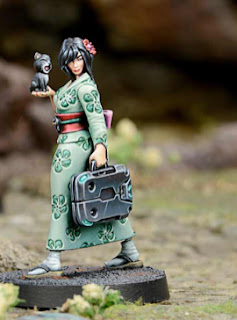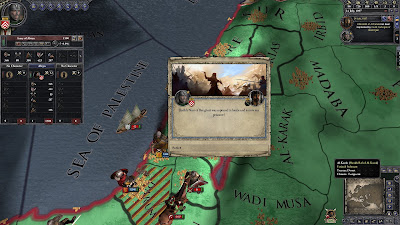defensedefumer's apologetic site. Happiness, there's grace! Not just for us but the whole human race!
Sunday, April 29, 2018
My Confession: An uncurable disease
One of my students awoke one morning and found she could not unclench her fist, nor straighten her leg. During her hospitalisation, she was diagnosed with myotonia.
Myotonia is a genetic disease that affects the muscular and the nervous system. Patients will find relaxing their muscles to be difficult. For most patients, the symptoms only manifest themselves at age 18-20. There is no known cure.
How can I bear to explain to her this: the life that she once knew no longer applies. From now on, her movements will be limited and her odds of starting a family have fallen way below average.
Why this is happen? In my head, I know the answers. Scientifically, the disease is autosomal dominant and thus was inherited. Her parents do not have the symptoms so it appeared that some epigenetic trait saved them.
Theologically, I know that this is a recognition that sin had infected the world and the disease is a manifestation of that.
Practically, I could advise her how to adjust her lifestyle to aid herself.
Yet, these are not answers she needs yet.
I only can pray. Despite how desperate the situation it, I can trust God is in charge.
"Yet at the same time Christian faith is more absurdly, outrageously more hopeful than liberal rationalism, with its unhinged belief that not only is the salvation of the human species possible but that, contrary to all we read in the newspapers, it has in principle already taken place. Not even the rose-tinted Trotskyist believes that." -- Terry Eagleton
Monday, January 15, 2018
Theology 1.0: What were the crusades?
What were the crusades?
Every now and then, one must deal with the question of the Crusades. The Crusades were a military expedition sanctioned by the Roman Catholic Church to invade and annexed territory from Muslims, pagans and heretics. Due to horrific atrocities committed during such expeditions, the Crusades are often used as a sore point to show that Christianity promotes violence.
The word "Crusades" have a negative connotation till this day. The Campus Crusade for Christ changed their name to Cru to avoid the controversy. The Roman Catholic and Orthodoxy churches had bad blood with each other because of the actions of the Fourth Crusade (the Crusaders sacked Orthodox churches during that Crusade).
For this post, I will be focusing the expeditions to the Holy Land (Judea and the surrounding territory) that lasted from 1095 to 1291.
Whose land?
Judea (roughly Israel, Palestine, Jordan, Syria and Egypt) once belonged to the Christian Eastern Roman Empire.
With the rise of Islam, Judea fell to Muslim armies during the 600s and 700s. In 1095, the Eastern Roman Emperor Alexios I asked Pope Urban II for military aid. Stirring religious emotion, many knights, nobles and even peasants committed to the cause.
Due to the success of the First Crusade (against overwhelming odds), the attractiveness brought more and more adherents to the cause. This resulted in escalation of violence, which included the massacre of 60, 000 Jerusalem inhabitants during the First Crusade and execution of 2, 000 Muslim prisoners during the Third Crusade,
Points to think about
While the Crusades left a dark stain on the perception of Christianity, let us note the following:
1) The Crusades was a military response to the loss of land
2) Wars have been fought in the name of religion, and Christianity is hardly immune to it
3) Atrocities were committed by all sides.
For further reading:
wikipedia
Tuesday, December 12, 2017
Alternative Culture: A Grief Observed review
[The following post is dedicated to my friends Lisabelle and Rachel, who has helped me out so much in my Christian teaching journey in 2016.]
"No one ever told me that grief felt so like fear. I am not afraid, but the sensation is like being afraid."
-- C S Lewis
Some of the most well-meaning works on grief and loss are not honest enough. Most would try to snap the person out of their state by encouraging positive thinking or distracting oneself. Few books would try to deal with the problem emotionally.
C S Lewis wrote in a time of great personal loss. Using a pseudonym (as he did not want people to buy his books based on his reputation), he immediately confessed his feeling of fear, when he was not afraid. He offered few answers about the overcoming grief, yet affirms such feelings of anger and loss.
In a world where we offer mechanical solutions to every problem we encounter, we forget to take a breath, and reflect on our honest feelings during times of strife, confusion and pain. This is a book you want if you do not like sugar-coasted answers.
Wednesday, December 06, 2017
My confessions: My reflection on the 500th year of Reformation
 |
| Martin Luther was often credited to be the father of the Reformation |
But it should.
The world today
It is hard to argue for the importance of the Reformation in this day and age. After all, the Reformation led to a period of religious wars in Europe, and religious disputes are often seen as dangerous, racist and uncharitable. We value peace and stability over truth and accuracy. Even my youth pastor once mentioned that the Reformation was over a dispute over minor matters.
Secondly as my friend puts it, "Singaporeans are a practical people". Religion appears to have no practical effect on the lives of people other than appealing to tradition and culture. For the most of us, our knowledge of even our own religion tends to be superficial and third-hand. Even when we are interested in religion, we tend to try to find practical tips in Christian living, rather than digging deep and finding truth.
The importance of the Reformation
However, the message of the Reformation is still relevant as ever. The crux (key message) of the Reformation is about justification, or "what makes us just before God".
The Reformers argued that the purpose of life is to be justified before God, and to be counted as righteous. This runs contrary to our secular way of where we seek acceptance through our work, achievements or connections. And secular demands places a lot of pride in our work (and ignores God) and much stress on our health.
What should we do?
Instead of remembering the Reformation as some trivial history, I encourage everyone to dig down deep. Remember what Christ did for us, instead of assuming that we earned our way.
Friday, September 22, 2017
With Due Respect: Miracles happen in other religions too!
Too often I have heard many a friend state that presence of miracles to prove their belief system is true. For instance, they would pray for a friend or a family member to be healed, and he/she is healed supernaturally. This proves that their point of view is correct, right?
Christianity does not discount the possibility of the supernatural in other faiths
As a Christian, I recognise the possibility of miracles. In the Apostle's Creed, I confess the virgin birth and the resurrection of Jesus.
Therefore, I also do recognise the possibility of the supernatural activities. My point is whether any of such miracles deny the reality of the life and death and resurrection of Jesus.
In other words, miracles of other belief systems by themselves do not lessen the case for Christianity.
The point of Christianity is not too simply perform miracles
One of the evidence of Christianity is the miracle of the resurrection of Jesus.
However, many would claim this point to be able to heal supernaturally or pray in tongues. If that was all we preached, we completely missed the love of God.
The point of Jesus's sacrifice was that he loved us so much, he died for our sins so that we can be reconciled with God. And if we missed that, we will be so much poorer.
Wednesday, August 09, 2017
Alternative culture: I'm a committed atheist, but my child has become religious – and I'm proud of her for challenging my indoctrination
Recently, I saw an interesting article in the Independent. An atheist write on how she is proud to send her daughter to a Christian school. In fact, both her and her husband did not object to their daughter's conversion to Christianity.
I found it impressive that the couple recognised that belief and non-belief was a matter of choice, and allow their daughter to choose according to her conscience.
Being open-minded
What I admire about this couple is the willingness to accept that their daughter may have a different viewpoint from them, and allowed her to follow through.
Wednesday, April 19, 2017
My Confession: Poor prayer life
Dear God,
I have a confession -- when I am busy, my prayer life would be the first to go. Then my Bible reading. Then me even thinking of you.
I don't want to live my life as if You do not exist.
Don't leave me this way, Father.
Subscribe to:
Posts (Atom)





